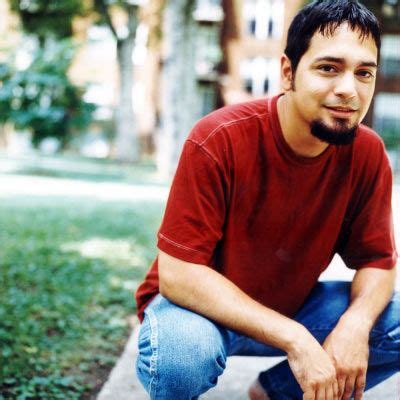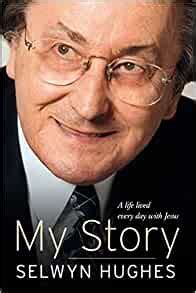A Quote by N. T. Wright
The Psalms offer us a way of joining in a chorus of praise and prayer that has been going on for millennia and across all cultures. Not to try to inhabit them, while continuing to invent non-psalmic 'worship' based on our own feelings of the moment, risks being like a spoiled child who, taken to the summit of Table Mountain with the city and the ocean spread out before him, refuses to gaze at the view because he is playing with his Game Boy
Quote Topics
Across
Based
Because
Been
Before
Being
Boy
Child
Chorus
City
Continuing
Cultures
Feelings
Game
Gaze
Going
Him
His
Inhabit
Invent
Joining
Joining In
Like
Moment
Mountain
Ocean
Offer
Our
Out
Own
Playing
Praise
Prayer
Psalms
Refuses
Risks
Spoiled
Spread
Summit
Table
Taken
Them
Try
Us
View
Way
While
Worship
Related Quotes
To be used of God. Is there anything more encouraging, more fulfilling? Perhaps not, but there is something more basic: to meet with God. To linger in His presence, to shut out the noise of the city and, in quietness, give Him the praise He deserves. Before we engage ourselves in His work, let's meet Him in His Word... in prayer... in worship.
His desperation and misery swept her up like a storm capturing the sea. She turned her mind to even these feelings, because they were his, like his terrified rage in the lift when they had first met, being wrapped in his arms in the cold well, being dazzled by his wonder at the woods and her home and her. Like being a child, awareness of him the morning chorus that woke her and the lullaby that sent her to sleep, his thoughts always her first and last song.I love you, Kami told him, and cut.
The Psalter is the prayer book of Jesus Christ in the truest sense of the word. He prayed the Psalter and now it has become his prayer for all time...we understand how the Psalter can be prayer to God and yet God's own Word, precisely because here we encounter the praying Christ...because those who pray the psalms are joining in with the prayer of Jesus Christ, their prayer reaches the ears of God. Christ has become their intercessor.
Sherman made the terrible discovery that men make about their fathers sooner or later... that the man before him was not an aging father but a boy, a boy much like himself, a boy who grew up and had a child of his own and, as best he could, out of a sense of duty and, perhaps love, adopted a role called Being a Father so that his child would have something mythical and infinitely important: a Protector, who would keep a lid on all the chaotic and catastrophic possibilities of life. ~Tom Wolfe
It is God who gives us the spirit of worship (Psalm 133:3), and it is what we know of God that produces this spirit of worship. We might say that worship is simply theology, doctrine, what we think about God, going into top gear! Instead of merely thinking about Him, we tell Him, in prayer and praise and song, how great and glorious we believe Him to be!
Who are we, as we stand before the child Jesus? Who are we, standing as we stand before today's children? Are we like Mary and Joseph, who welcomed Jesus and cared for him with the love of a father and a mother? Or are we like Herod, who wanted to eliminate him? Are we like the shepherds, who went in haste to kneel before him in worship and offer him their humble gifts? Or are we indifferent?
We can expect God to provide everything necessary to make worship possible. We children of God must ever be dependent upon God, for we have no resources of our own. We are as impoverished in worship times as a baby unable to provide its own bottle at feeding time. God, the object of our worship, also becomes the inspiration of that worship. He has imparted His own Spirit into our hearts to energize that worship. All that is due Him comes from Him. His glorious Person evokes admiration for and honor of Him, as He imparts His nature into me.
One of the reasons I love prayer is that it is an antidote to guilt and blame. If we are unhappy with the way we have acted or been treated, instead of stewing in self-recrimination on the one hand, or harboring ill will toward someone else on the other, prayer gives us a way out of the circle of guilt and blame. We bring our painful feelings into the open and say, "I have done wrong," or "I have been wronged." And then we ask for a vaster view--one that contains within it all the forgiveness we need in order to move forward.
History, in [Nietzsche's] view, belongs to him who is fighting a great fight, and who needs examples, teachers and comforters, but cannot find them among his contemporaries. Without history the mountain chain of great men's great moments, which runs through millennia, could not stand clearly and vividly before me.
Everybody wants to be on the mountaintop, but if you'll remember, mountaintops are rocky and cold. There is no growth on the top of a mountain. Sure, the view is great, but what's a view for? A view just gives us a glimpse of our next destination-our next target. But to hit that target, we must come off the mountain, go through the valley, and begin to climb the next slope. It is in the valley that we slog through the lush grass and rich soil, learning and becoming what enables us to summit life's next peak.
A human encounter with holiness is devastating. It refuses to allow us to be impressed with the things of the world we’ve been chasing. It refuses to allow us to remain comfortable in our sin. It refuses to allow us to remain on the throne of our lives. And it leads us to a relationship with the only One who can perfectly love us, who can forgive all our sins, and who can make us into His likeness. Our encounter with His holiness is our devastation. And our devastation is our salvation.
Let us pause before the Child of Bethlehem. Let us allow our hearts to be touched, let us allow ourselves to be warmed by the tenderness of God; we need his caress. God is full of love: to him be praise and glory forever! God is peace: let us ask him to help us to be peacemakers each day, in our life, in our families, in our cities and nations, in the whole world. Let us allow ourselves to be moved by God's goodness.
The law of giving and receiving is fundamental, and relates just as much to God as it does to us. As we go through the door of giving ourselves to God in worship we find that God comes through that same door and gives Himself to us. God's insistence that we worship Him is not really a demand at all but an offer-an offer to share Himself with us. When God asks us to worship Him, He is asking us to fulfill the deepest longing in Himself, which is His passionate desire to give Himself to us. It is what Martin Luther called "the joyful exchange."




































